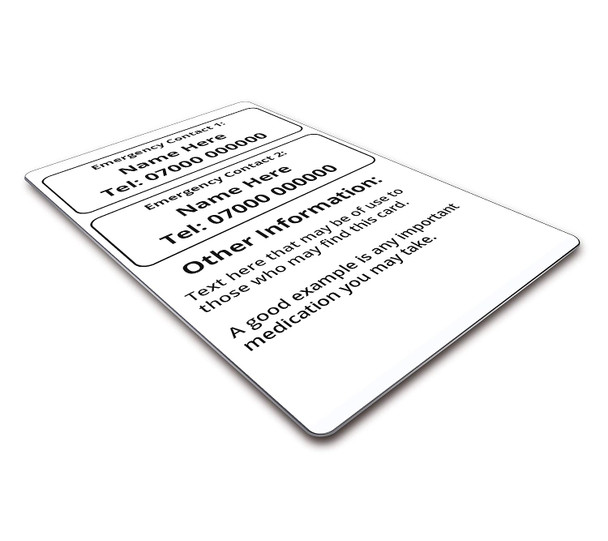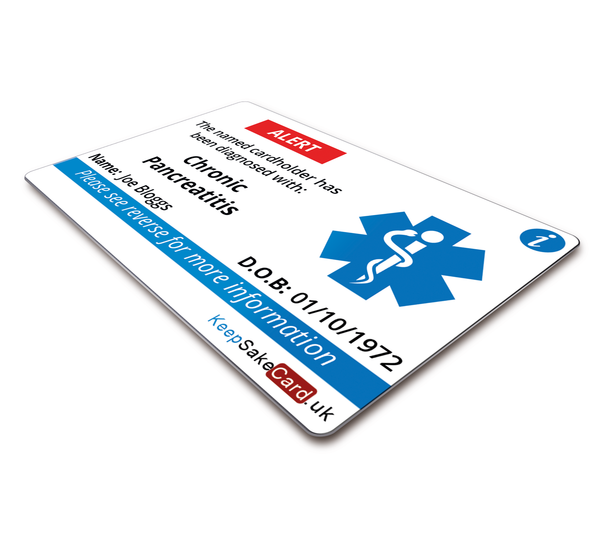Description
Chronic Pancreatitis Medical I.C.E. Card – In Case of Emergency
Chronic Pancreatitis is a long-term inflammation of the pancreas that affects digestion and can lead to severe abdominal pain, weight loss, nausea, and malnutrition. Over time, the pancreas may become permanently damaged, requiring ongoing pain management, enzyme supplements, or insulin if diabetes develops. In emergency situations, intense abdominal symptoms can be mistaken for other acute conditions. This fully printed Chronic Pancreatitis ICE (In Case of Emergency) card ensures that your condition is clearly communicated, helping medical responders deliver faster and more accurate care.
Ideal for daily use, hospital visits, travel, or public settings — this card ensures your diagnosis is recognised, even if you're unable to explain it during a flare-up.
Features & Benefits:
- Fully printed PVC card with no handwriting required
- Standard credit card size that fits neatly into wallets, purses, or lanyards
- Clearly marked with “Chronic Pancreatitis” for fast and visible identification
- Reverse side includes space for two emergency contact names and phone numbers
- Additional area for optional notes such as pain management plan, pancreatic enzyme replacement therapy (PERT), or diabetes-related care
- Optional field for date of birth to support emergency identification
- Waterproof, durable, and designed for everyday use
This Chronic Pancreatitis ICE card is a discreet, practical way to make your medical needs clear in emergency settings — helping you receive the most appropriate care without delay.
What is Chronic Pancreatitis?
Chronic Pancreatitis is a condition where the pancreas becomes inflamed over a long period, leading to permanent damage. It affects digestion by reducing enzyme production and can also impair insulin production, potentially leading to diabetes. Common causes include long-term alcohol use, genetic factors, or autoimmune conditions. Symptoms may flare suddenly and be severe. An ICE card helps emergency responders recognise the condition quickly and manage it appropriately, reducing the risk of misdiagnosis or unnecessary treatment delays.






